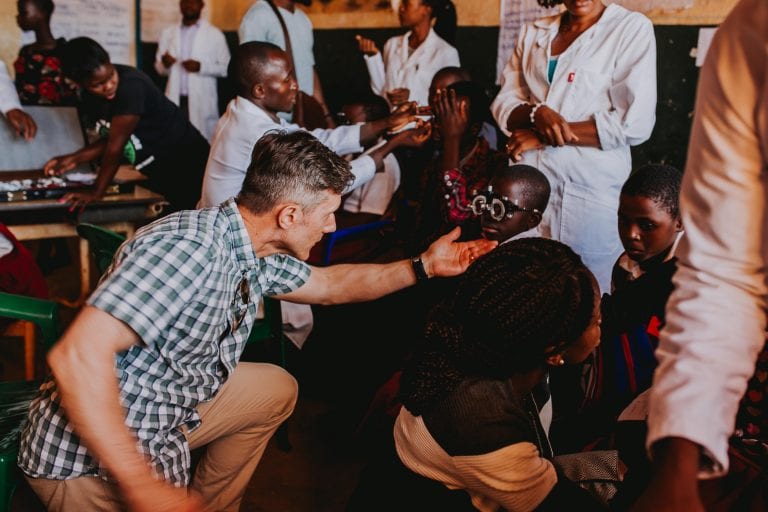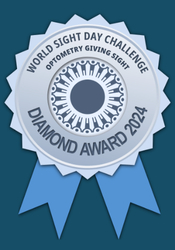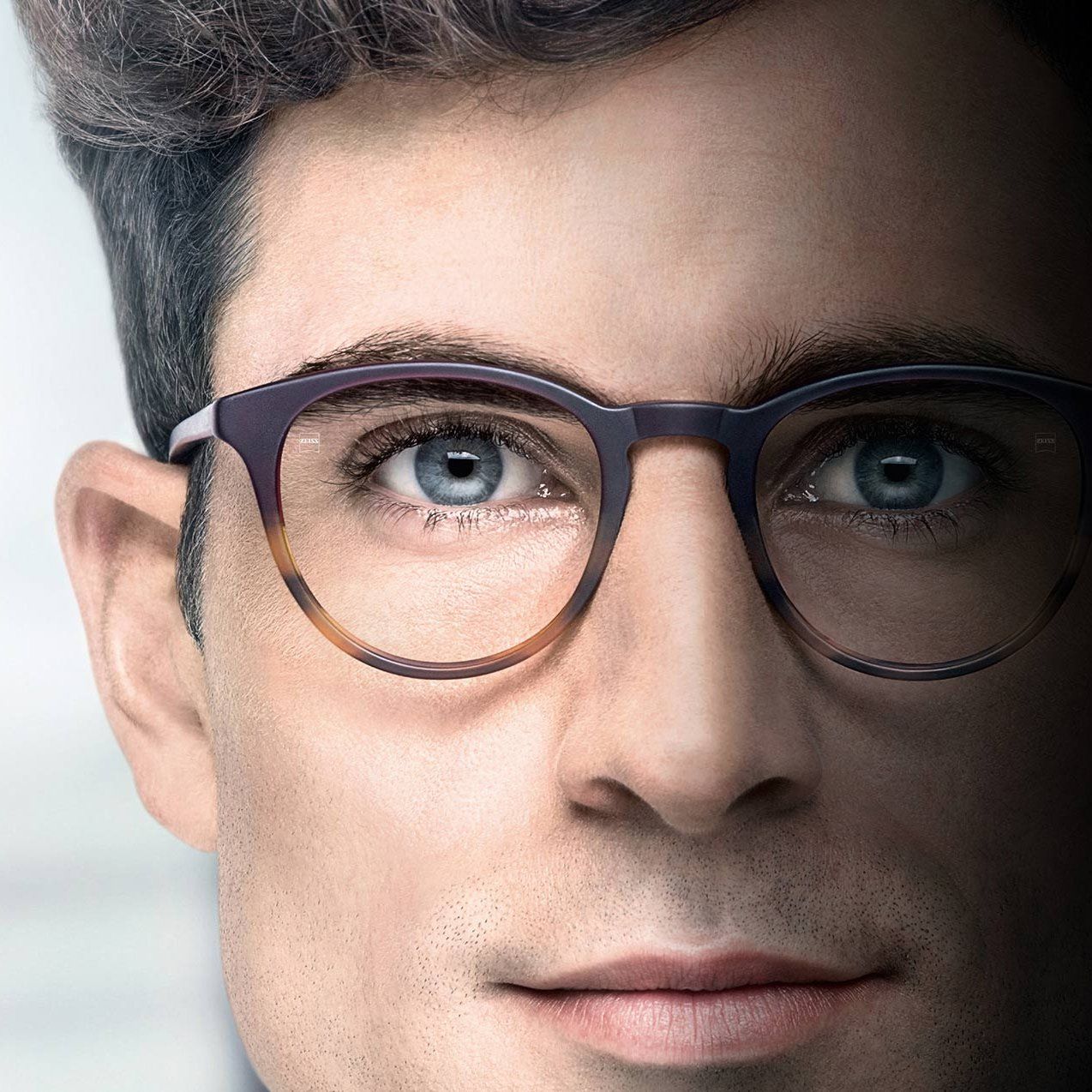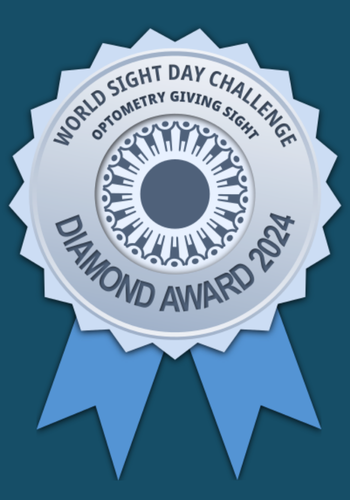Malawi, Africa Mission Trip Experience – Dr. Tom Wilk

The prospect of travelling halfway around the world to relatively unknown areas is both exciting and anxiety inducing. On top of that goes the significant preparation (longer than a year) including fundraising, travel arrangements, various inoculations, networking, scheduling, time away from my practice, successful fundraising etc. so a lot was at stake. Once we arrived and met the people of Malawi however, any apprehensions quickly dissolved, and we were able to focus on our core purpose for this trip while making some great friends in the process.
This mission trip was different from the last one, in that we were not traveling to Malawi to provide eye care services directly. Rather, as a condition of the Rotary grant from our District, we were to be part of a “Vocational Training Team” that would help train the local graduates of the new Optometry school in Mzuzu, Malawi. Rotary International will only support programs that demonstrate sustainability, and education falls within that category. Accordingly, our team of 6 had prepared about 30 hours of lectures on everything from management of eye injuries to properly fitting a pair of glasses. We weren’t quite sure how it would be received as we knew we were going to be working with different competencies from year 2 through year 4.
Our Dream Team consisted of Tony Wong and Cindy Shum (optometrists from Vancouver and close friends for almost 30 years), Lindsay Copeland (one of our terrific MVO doctors), Kaila Pharis (awesome optical consultant and now completed her 2 nd Mission trip), Michele and myself.
Over 40 hours of travel left us pretty tired by Sunday evening’s arrival, but we knew we had to get up bright and early Monday morning to head to the school, so we tried to get some rest. Fortunately, it was the end of the rainy season in Malawi, so the dust wasn’t too bad and the temperatures were starting to cool down slightly, so clinical attire in the form of long sleeved shirts and slacks was comfortable enough. Grace, one of the optometry professors, met us at the head office and we were introduced to Joseph, the Dean of the school who arrived some time later (it was at this point we learned that Malawi meeting times are vague suggestions at best). He gave us directions to our classrooms, we split up into our 3 groups and set off. I was still on crutches from a late-season ski injury so the walk to the classroom along the dirt roads was a bit challenging. Once we got to the classroom we found the students already seated and patiently waiting. One of the nice things about this trip was that most adult citizens of Malawi know English – the lack of understanding due to language barriers is one reason why mission trips to developing nations can be difficult. I delivered my first lecture “Diagnosis of Acute Vision Loss” and tried to gauge the student’s level of knowledge and engagement. They were pretty quiet overall but I observed most of them taking notes and paying attention. There was power outage which killed my projector, so I was excited to use the battery powered one I had brought for just such an occasion, but after a 10 minute setup the power came back on and we went back to the original unit.
Our late start had me not quite finished my 2 nd lecture by the time lunch started. If I had any doubts about whether or not I was getting through they were put to rest when Grace quietly passed a note up to the front as I was speaking: “Dr. Tom: I have been informed your team is waiting for you and Michele… could we continue the lecture later? The students are really enjoying it.”
That afternoon we were invited to attend a house league soccer game between 2 of the optometry classes (soccer is a big deal in Malawi – it was the only time Dr. Joseph was insistent on us being on time!). Malawians are a very friendly people and demonstrated wonderful hospitality. We were very involved in some kind of activity most days with the faculty and/or students throughout the duration of our stay.
Subsequent days had us lecturing in the morning, then performing “outreach” clinics with the students in levels 3 and 4 in the afternoon, usually at a local school. At one of these events, a teacher came in for an eye exam (the first she’s ever had) and we found that she had no vision in her left eye. With a bit of coaching, my student (Elizabeth) diagnosed her with late-stage glaucoma in both eyes. Although the left eye could not be saved, her condition was not as advanced in the right eye. With special medicated drops she has a good chance of saving her vision in that eye. I congratulated Elizabeth on her diagnosis that likely saved this woman’s remaining vision – I could tell this was a proud and defining moment in her optometric career, and certainly one of the most memorable for me. Another time a young girl of maybe 8 years old was diagnosed with a cataract, present since birth, causing blindness in one eye. We arranged transport to the hospital for surgery. This was likely the one time in her life she would have the opportunity to get seen and cared for, we were lucky to have found her.
Women, especially, must overcome significant odds to pursue and attain higher level education in Malawi. Much of their culture is rooted in old traditions which expects them to start having children as soon as they are able, and to have as many as possible (average family size is over 8 kids!). It was great to see that a significant percentage of the optometry students at Mzuzu were female.
Some of the other highlights of the trip – traveling in our bus through the jungle with about 20 optometry students en route to a nearby school (no roads have names, I have no idea how we got there) and having them all singing some of their native songs together; attending Dr. Joseph’s home on campus where we met his family and were treated to some tasty local cuisine; visiting the Sara’s Children orphanage and playing with 104 awesome kids; passing out graduation certificates for “Advanced Training in Clinical Knowledge and Skill” to the 3 rd and 4 th year students; and traveling some gorgeous rural roads being guided by our trusted driver Collins (while singing some of our own “native songs” and handing out soccer balls and jump ropes to kids from the villages along the way).
I learned that despite the great optometry program and dedicated students at the Mzuzu University, many will not have jobs upon graduation due to a lack of funding from the government. I am now working with a few organizations including Rotary to try and facilitate private practice opportunities for some of these deserving graduates and continue to deliver much needed eye care to Malawi. It will be a challenging but very worthwhile succession plan to this inaugural mission.
I would like to thank the people that helped make this mission possible – starting with our terrific patients (thank you for the donations), the Rotary Club of Cochrane and Rotary District 7360, Canadian Vision Care and Dr. Allan Jones whose dedication and passion for the cause is inspiring, Shawn with Zeiss Canada and lastly to the very unique and special members of our team – it was an honour to share this experience with all of you.
and lastly to the very unique and special members of our team – it was an honour to share this experience with all of you.












